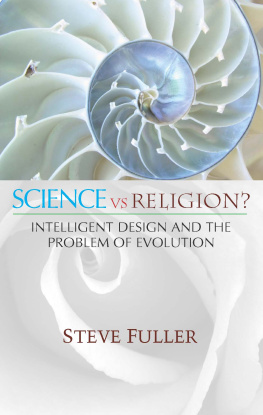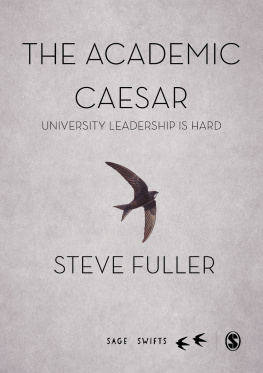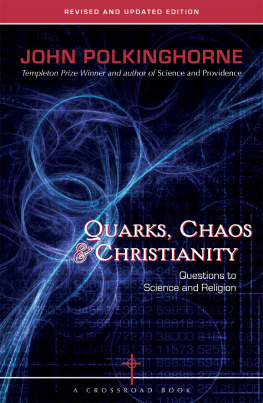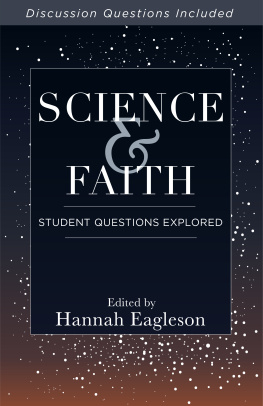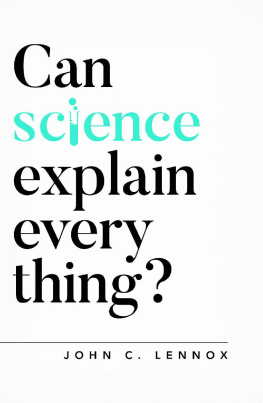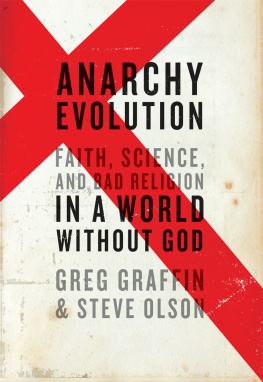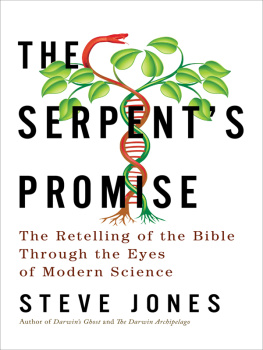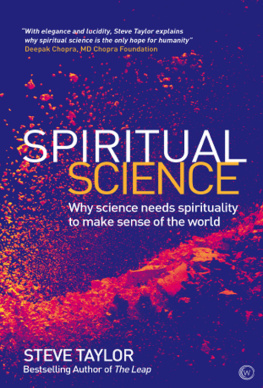Science
THE ART OF LIVING SERIES
Series Editor: Mark Vernon
From Plato to Bertrand Russell philosophers have engaged wide audiences on matters of life and death. The Art of Living series aims to open up philosophys riches to a wider public once again. Taking its lead from the concerns of the ancient Greek philosophers, the series asks the question How should we live?. Authors draw on their own personal reflections to write philosophy that seeks to enrich, stimulate and challenge the readers thoughts about their own life.
Clothes John Harvey
Commitment Piers Benn
Death Todd May
Deception Ziyad Marar
Distraction Damon Young
Faith Theo Hobson
Fame Mark Rowlands
Forgiveness Eve Garrard and David McNaughton
Hunger Raymond Tallis
Illness Havi Carel
Me Mel Thompson
Middle Age Christopher Hamilton
Money Eric Lonergan
Pets Erica Fudge
Science Steve Fuller
Sport Colin McGinn
Wellbeing Mark Vernon
Work Lars Svendsen
First Published 2010 by Acumen
Published 2014 by Routledge
2 Park Square, Milton Park, Abingdon, Oxon OX14
711 Third Avenue, New York, NY 10017, USA 4RN
Routledge is an imprint of the Taylor and Francis Group, an informa business
Steve Fuller, 2010
This book is copyright under the Berne
Convention. No reproduction without permission.
All rights reserved. No part of this book may be reprinted or reproduced or utilised in any form or by any electronic, mechanical, or other means, now known or hereafter invented, including photocopying and recording, or in any information storage or retrieval system, without permission in writing from the publishers.
Notices
Practitioners and researchers must always rely on their own experience and knowledge in evaluating and using any information, methods, compounds, or experiments described herein. In using such information or methods they should be mindful of their own safety and the safety of others, including parties for whom they have a professional responsibility.
To the fullest extent of the law, neither the Publisher nor the authors, contributors, or editors, assume any liability for any injury and/or damage to persons or property as a matter of products liability, negligence or otherwise, or from any use or operation of any methods, products, instructions, or ideas contained in the material herein.
ISBN: 978-1-84465-204-4 (pbk)
British Library Cataloguing-in-Publication
Data A catalogue record for this book is available from the British Library.
Typeset in Warnock Pro.
Contents
Science is a way of life that can flourish only when men are free to have faith.
Norbert Wiener
The thesis of this book may be summarized in one sentence: the art of living scientifically involves taking theology much more seriously than either practising scientists or religious believers are inclined to do. The Good News I bring comes courtesy of Dr Strangelove, who graces the title of the first chapter. Here I present the books overarching argument: that our continuing faith in science in the face of its actual history is best understood as the secular residue of a religiously inspired belief in Divine Providence. Little surprise, then, that Darwinists have been conspicuously silent about evolutionary accounts of the significance that humans have attached to science, given the increasing level of risk to which science has exposed us as a species. Indeed, I argue in that the history of atheism, Darwinisms spiritual sidekick, would be the last place to seek a long-standing, consistent faith in science.
But before reaching that point, several chapters are concerned with understanding the nature of the drive to live scientifically. The drives sources are various but ultimately traceable to the Abrahamic religions. In our own times, claims to live scientific lives have been marked by a spirit of dissent from established scientific authorities, which I collectively call Protscience (i.e. Protestant Science). Just as the original Protestant Reformers were often maliciously portrayed as atheists, purveyors of alternative forms of science today are also unjustifiably tarred as anti-science. In both the original religious and the more recent scientific cases, the dissenters aim to recover the original animating spirit of a common enterprise that has been subverted in its institutionalization. The final three chapters address rather directly what the overriding belief in scientific progress says about us as a species, especially in terms of how humanity might develop. In this context, I explore what it might mean to undo the past and change the future especially in light of advances in our understanding of molecular biology and facility in biotechnology. Clearly such matters bear significantly on the terms in which we humans might recover from our fallen state.
Let me first thank Mark Vernon for inviting me to contribute to this very interesting and important series, especially on the topic he proposed, science I published a book with Open University Press and University of Minnesota Press bearing the same title in 1997. While that book was not consulted in writing this one, my fundamental philosophical views have not substantially changed although they are now expressed differently, reflecting the significant changes in science, politics and religion that have occurred in the interim. I also thank Mark for suggesting that I rename what I originally christened Protescience: Protscience. I like this term because its punk sound conveys a defiant stance against establishment science (as it does in Christian slang). But equally I like the rhyme of Prot with Trot, as in Trotskyite since I take sciences progressive future to require a return to its original theological impulse, even if that means subverting or otherwise criticizing the current scientific establishment in search of a more inclusive universal truth. Those familiar with the history of Marxism will appreciate the fear and loathing I invite by this comparison, as Trotskyites tend to be typecast as agents of negativity and confusion for their endless claims about betrayal of the revolution that only seem to serve to destabilize already existing socialist regimes. However, if we wanted to make our lives as easy as possible, we would not have placed such great store by the pursuit of science in the first place.
Perhaps related to this point, I must apologise to Mark for not following another of his suggestions, namely, to present more criticism of contemporary intelligent design theory. My refusal here bears on my attitude towards scepticism, which I see as wholly destructive of scientific progress if not applied, as it were, homoeo-pathically I take this to be the animus behind Karl Poppers famed appeal to falsifiability in science, which places methodological limits on sceptical questioning. Scepticism is important to the scientist only as a journey-mapping device that forces her to consider whether her efforts have taken her as far towards her destination as she thinks. It is not designed to discourage the scientific journey itself, something that scepticism has repeatedly done if not tempered. Even if intelligent design theory appears to enjoy less scientific support than neo-Darwinisn, it is nevertheless more likely to promote faith in the scientific enterprise than neo-Darwinism itself. Indeed, from the long view of history, neo-Darwinisms dominance may be judged a Pyrrhic victory for science.
This point is most relevant to , which argues that when atheism is seen as more than simply the denial of religious authority that is, as the outright denial of Gods existence its historic relationship to scepticism has made it a perennial science-stopper. Indeed, that great philosophical icon of scepticism David Hume was only a very qualified friend of modern science, preferring it more for the religious authority that it dispelled than any positive contributions it might make to understanding reality. I suspect that Humes iconic status is closely tied to the intellectual background he shares with his learned admirers today: anti-religious but scientifically untrained humanists.
Next page

